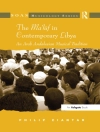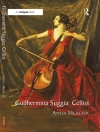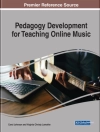Manchester Beethoven studies presents ten original chapters by scholars with close ties to the University of Manchester. It throws new light on many aspects of Beethoven’s life and works, with a special emphasis on early or little-known compositions such as his concert aria
Erste Liebe, his String Quintet Op. 104 and his folksong settings. Biographical elements are prominent in a wide-ranging reassessment of his religious attitudes and beliefs, while Charles Hallé, founder of the Manchester-based Hallé Orchestra, is revealed to have been a tireless and energetic promoter of Beethoven’s music in the later nineteenth century.
Table of Content
Introduction – Barry Cooper and Matthew Pilcher
1 Beethoven’s indebtedness to his teacher Christian Gottlob Neefe: a comparison of their Variations on Themes by
Carl Ditters von Dittersdorf – Kris Worsley
2 Beethoven’s Erste Liebe, Himmelslust, Wo O 92: sources, languages, text-setting – Matthew Pilcher
3 Situating Beethoven’s chamber music with wind: genre, topic and transcription – Martin Harlow
4 Beethoven’s variation sets and the role of the slow variation – Artur Pereira
5 A hermeneutic approach to word cues in the score of Beethoven’s Concerto No. 4 in G major for pianoforte and orchestra, Op. 58 – Sara Eckerson
6 Born under a gloomy star: new perspectives on Beethoven’s String Quintet Op. 104 – Jos van der Zanden
7 Transcending slowness in Beethoven’s late style – Marten Noorduin
8 Beethoven’s faith and beliefs in the context of his age: some unexplored avenues and reassessments, with special reference to Sailer – Susan Cooper
9 Beethoven’s view of Scotland – Barry Cooper
10 Charles Hallé: a Beethoven champion in Manchester – Siân Derry
Index
About the author
Barry Cooper is Professor of Music at the University of Manchester Matthew Pilcher is Lecturer in Music at the Royal Birmingham Conservatoire












